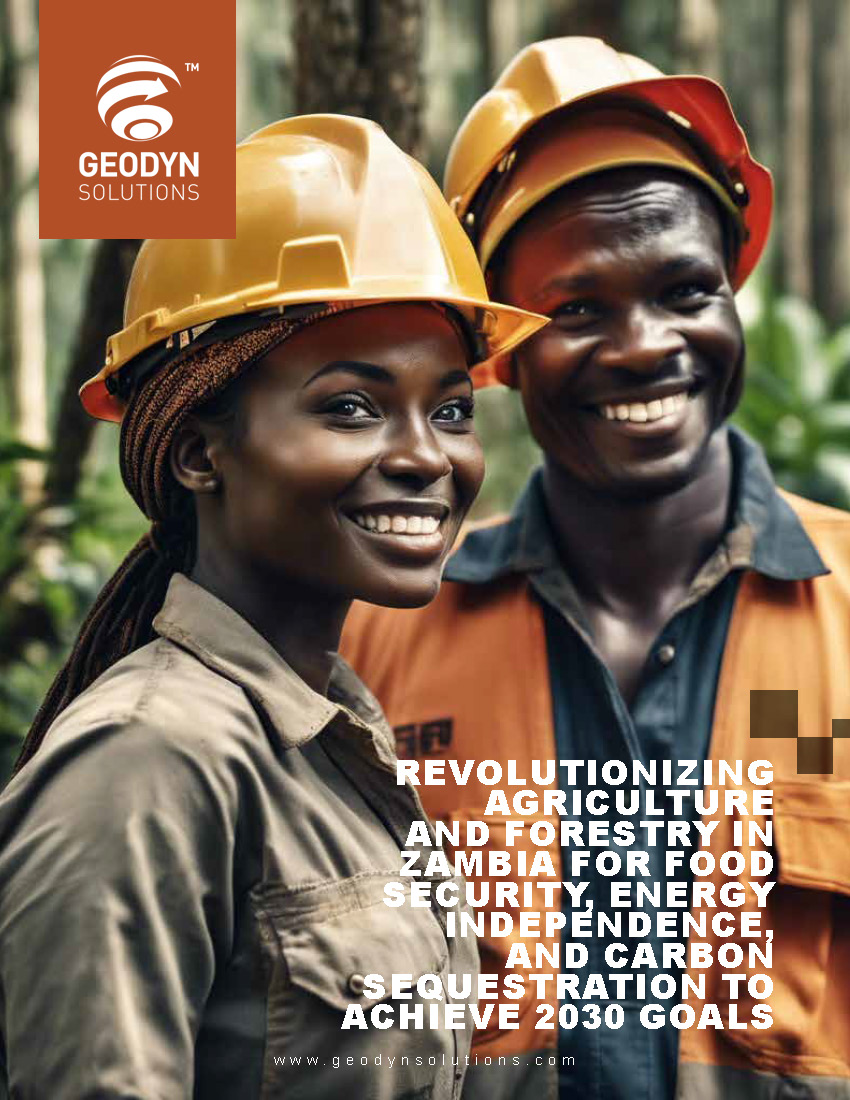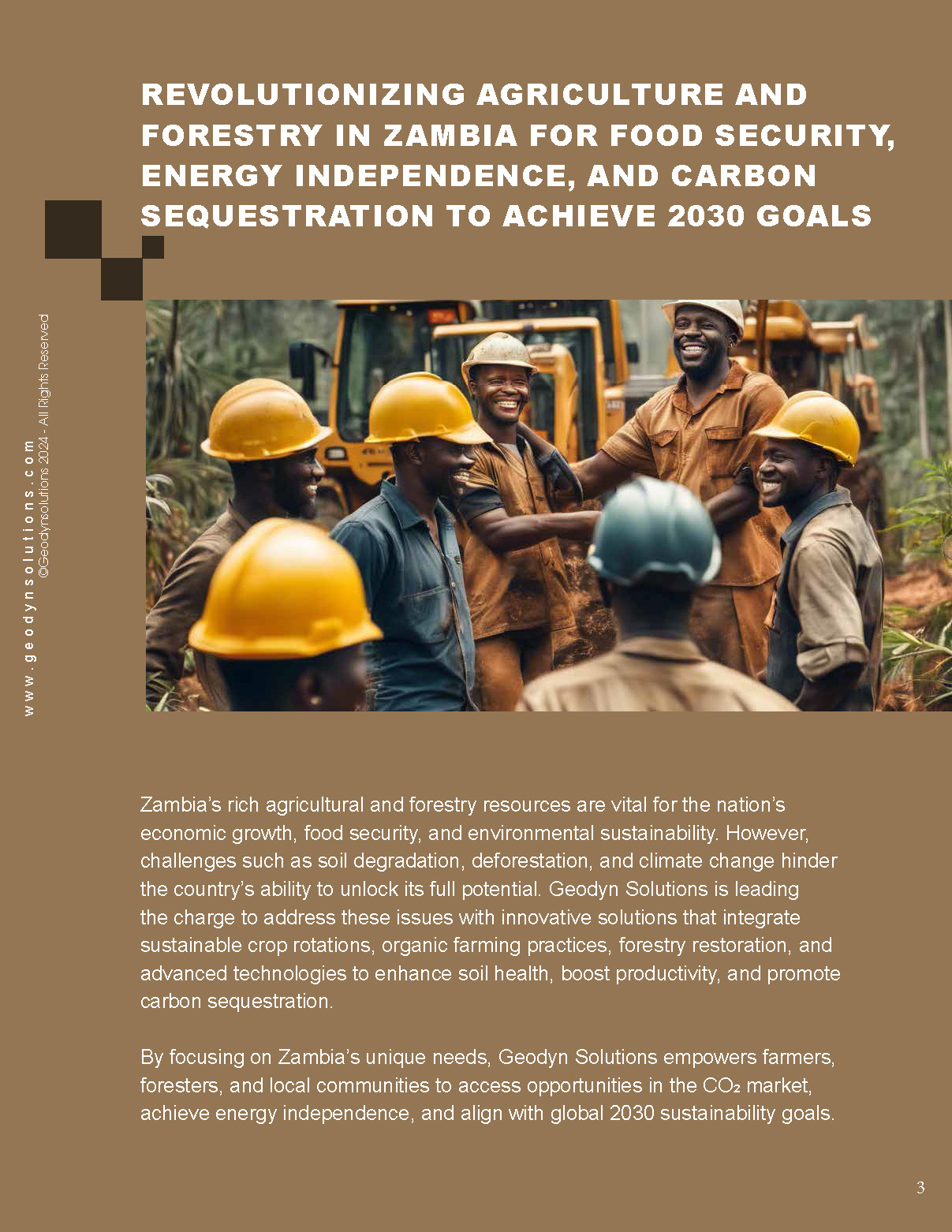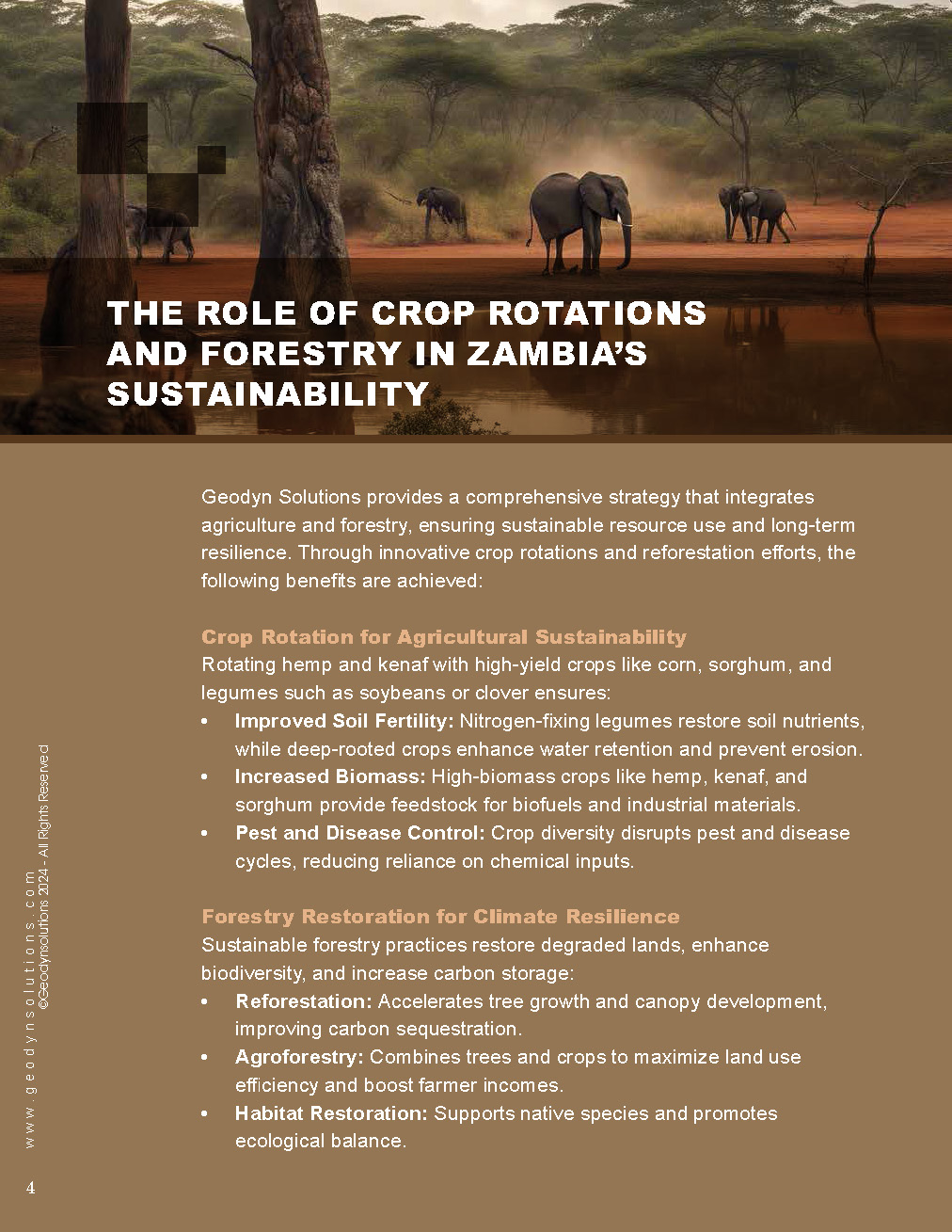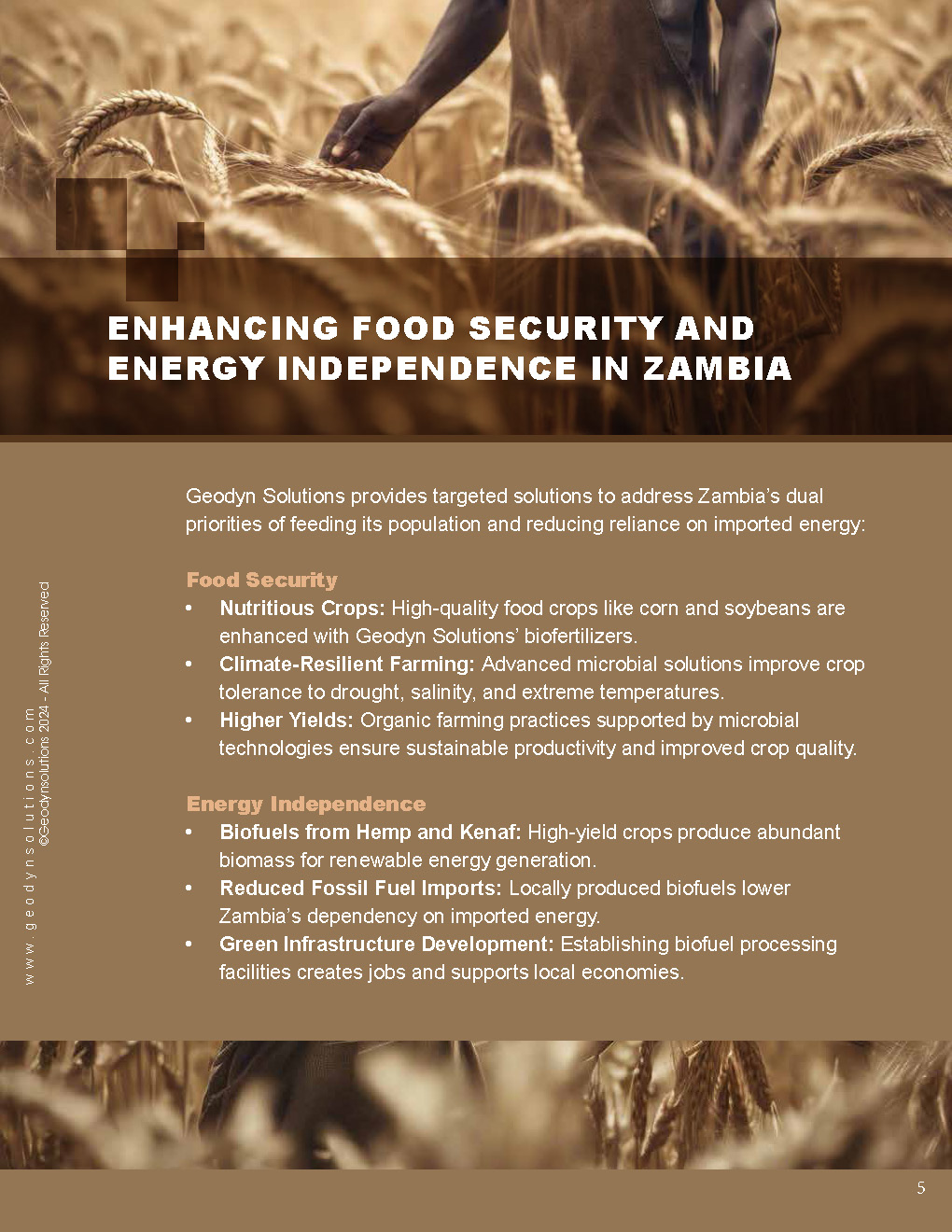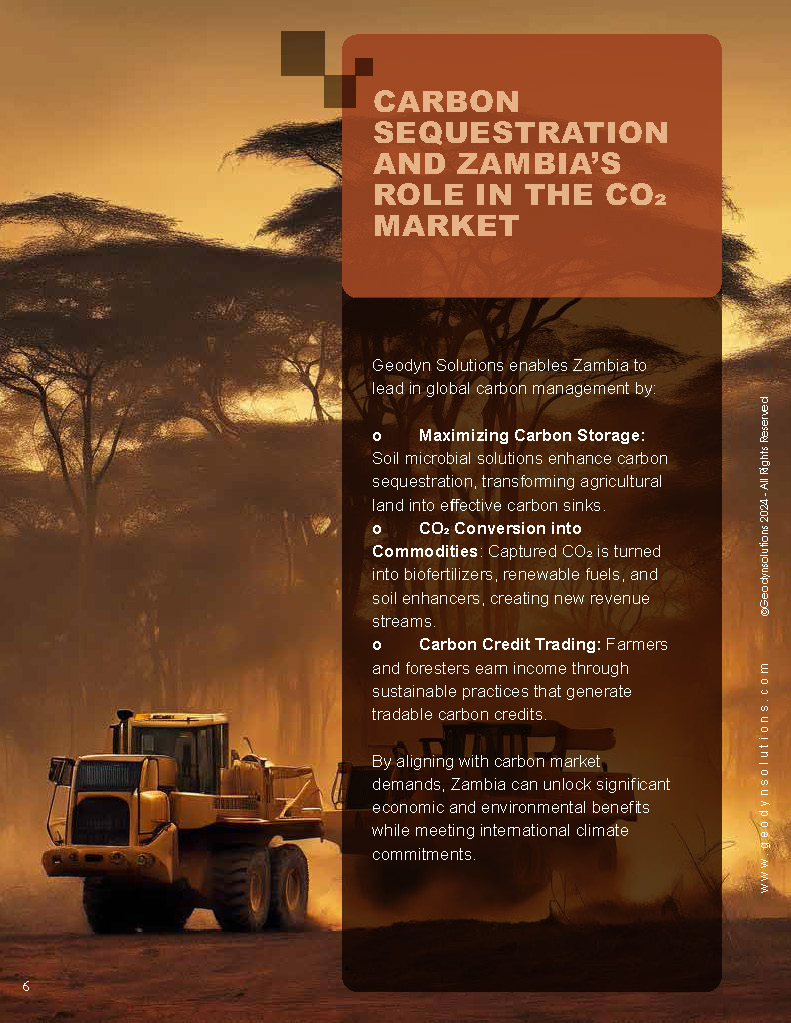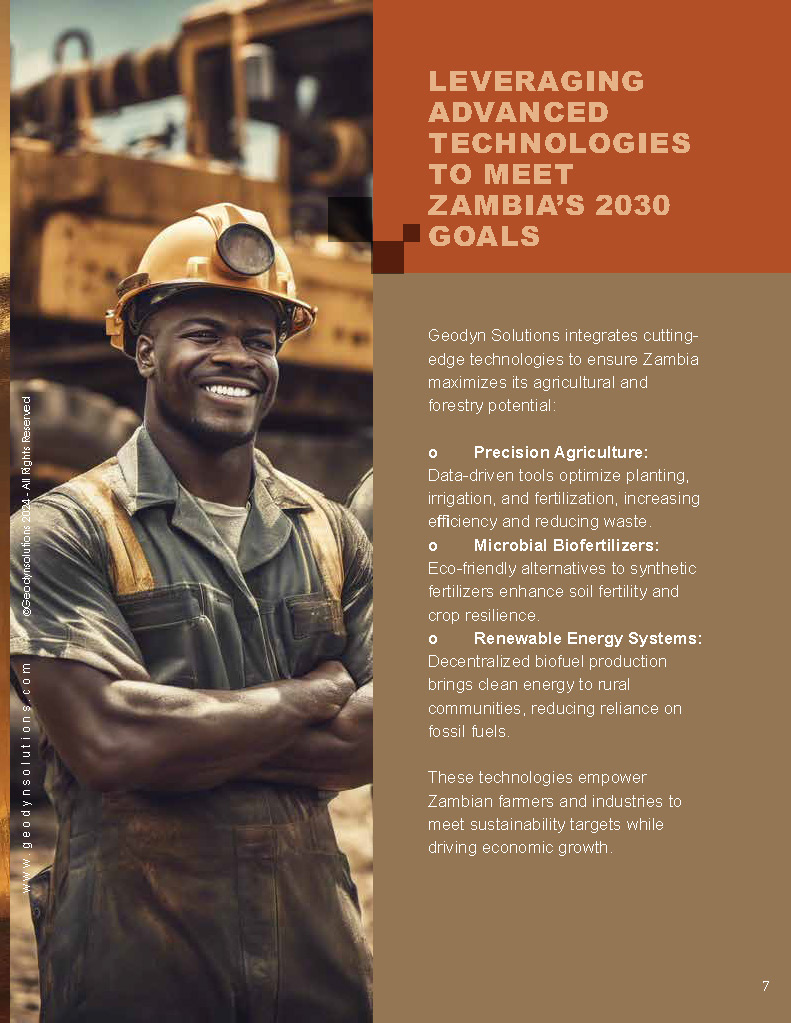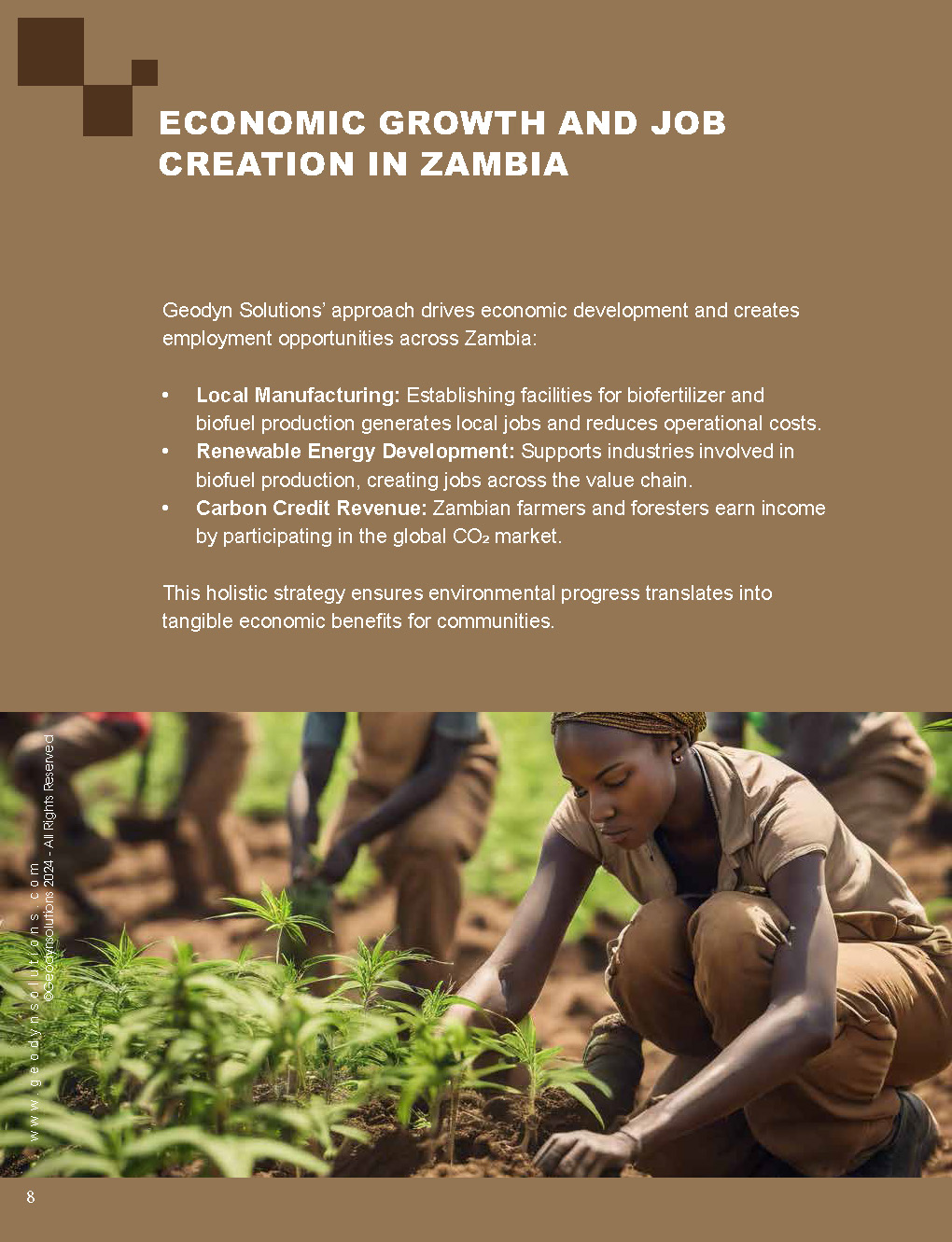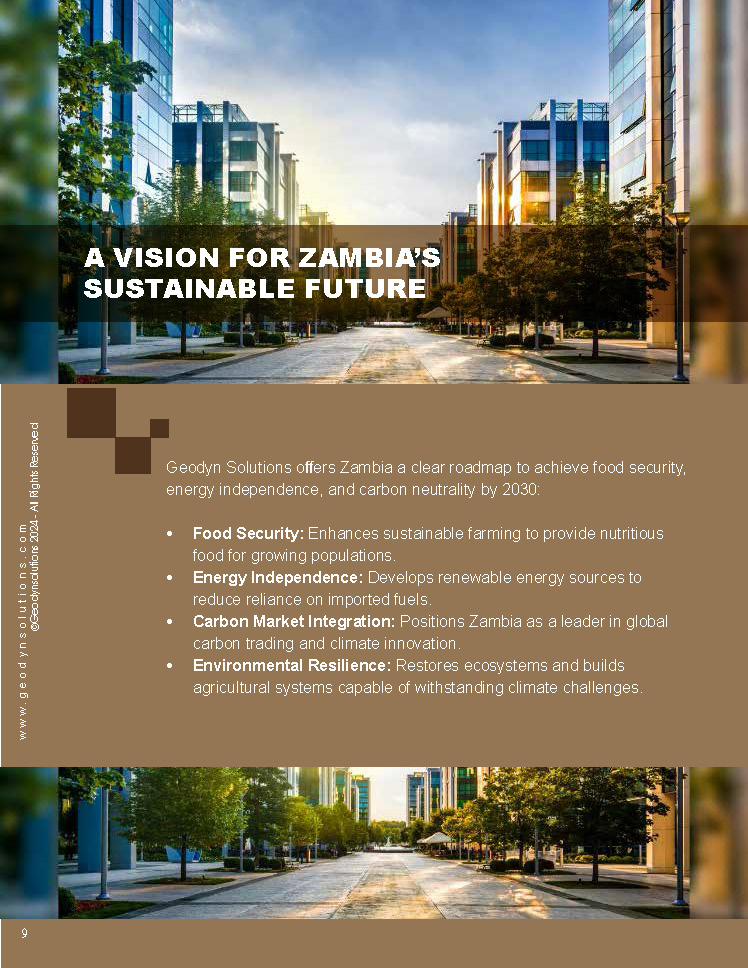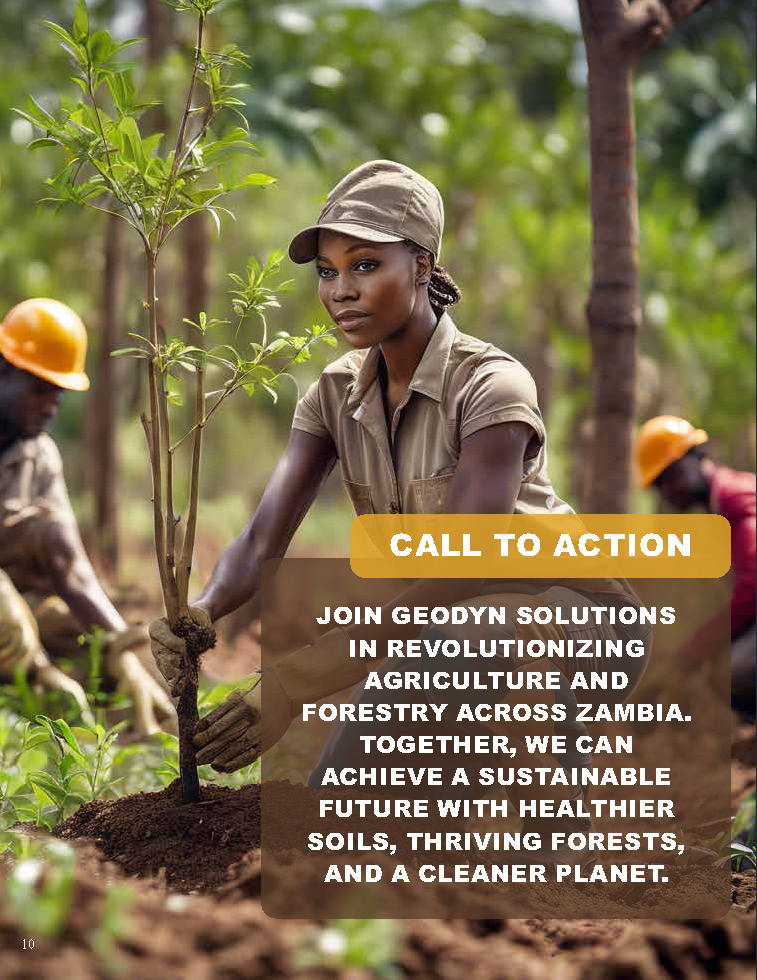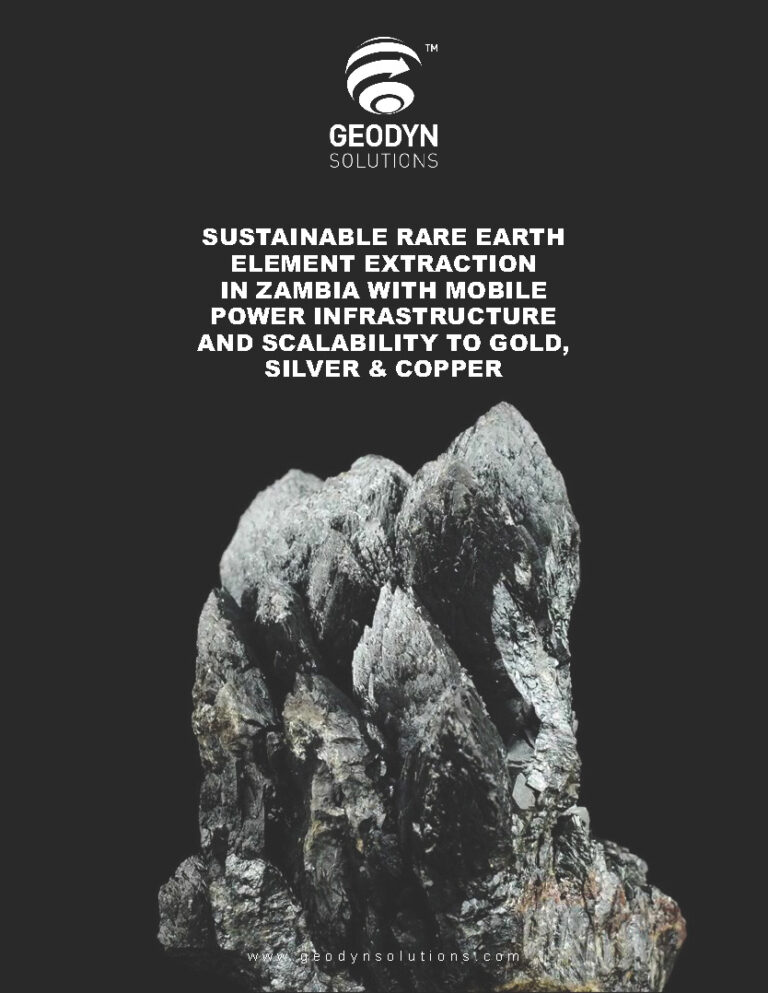Geodyn Solutions: Revolutionizing Agriculture and Forestry in Zambia for Food Security, Energy Independence, and Carbon Sequestration to Achieve 2030 Goals
Zambia’s rich agricultural and forestry resources are vital for the nation’s economic growth, food security, and environmental sustainability. However, challenges such as soil degradation, deforestation, and climate change hinder the country’s ability to unlock its full potential. Geodyn Solutions is leading the charge to address these issues with innovative solutions that integrate sustainable crop rotations, organic farming practices, forestry restoration, and advanced technologies to enhance soil health, boost productivity, and promote carbon sequestration.
By focusing on Zambia’s unique needs, Geodyn Solutions empowers farmers, foresters, and local communities to access opportunities in the CO₂ market, achieve energy independence, and align with global 2030 sustainability goals.
The Role of Crop Rotations and Forestry in Zambia’s Sustainability
Geodyn Solutions provides a comprehensive strategy that integrates agriculture and forestry, ensuring sustainable resource use and long-term resilience. Through innovative crop rotations and reforestation efforts, the following benefits are achieved:
Crop Rotation for Agricultural Sustainability
Rotating hemp and kenaf with high-yield crops like corn, sorghum, and legumes such as soybeans or clover ensures:
- Improved Soil Fertility: Nitrogen-fixing legumes restore soil nutrients, while deep-rooted crops enhance water retention and prevent erosion.
- Increased Biomass: High-biomass crops like hemp, kenaf, and sorghum provide feedstock for biofuels and industrial materials.
- Pest and Disease Control: Crop diversity disrupts pest and disease cycles, reducing reliance on chemical inputs.
Forestry Restoration for Climate Resilience
Sustainable forestry practices restore degraded lands, enhance biodiversity, and increase carbon storage:
- Reforestation: Accelerates tree growth and canopy development, improving carbon sequestration.
- Agroforestry: Combines trees and crops to maximize land use efficiency and boost farmer incomes.
- Habitat Restoration: Supports native species and promotes ecological balance.
Enhancing Food Security and Energy Independence in Zambia
Geodyn Solutions provides targeted solutions to address Zambia’s dual priorities of feeding its population and reducing reliance on imported energy:
Food Security
- Nutritious Crops: High-quality food crops like corn and soybeans are enhanced with Geodyn Solutions’ biofertilizers.
- Climate-Resilient Farming: Advanced microbial solutions improve crop tolerance to drought, salinity, and extreme temperatures.
- Higher Yields: Organic farming practices supported by microbial technologies ensure sustainable productivity and improved crop quality.
Energy Independence
- Biofuels from Hemp and Kenaf: High-yield crops produce abundant biomass for renewable energy generation.
- Reduced Fossil Fuel Imports: Locally produced biofuels lower Zambia’s dependency on imported energy.
- Green Infrastructure Development: Establishing biofuel processing facilities creates jobs and supports local economies.
Carbon Sequestration and Zambia’s Role in the CO₂ Market
Geodyn Solutions enables Zambia to lead in global carbon management by:
- Maximizing Carbon Storage: Soil microbial solutions enhance carbon sequestration, transforming agricultural land into effective carbon sinks.
- CO₂ Conversion into Commodities: Captured CO₂ is turned into biofertilizers, renewable fuels, and soil enhancers, creating new revenue streams.
- Carbon Credit Trading: Farmers and foresters earn income through sustainable practices that generate tradable carbon credits.
By aligning with carbon market demands, Zambia can unlock significant economic and environmental benefits while meeting international climate commitments.
Leveraging Advanced Technologies to Meet Zambia’s 2030 Goals
Geodyn Solutions integrates cutting-edge technologies to ensure Zambia maximizes its agricultural and forestry potential:
- Precision Agriculture: Data-driven tools optimize planting, irrigation, and fertilization, increasing efficiency and reducing waste.
- Microbial Biofertilizers: Eco-friendly alternatives to synthetic fertilizers enhance soil fertility and crop resilience.
- Renewable Energy Systems: Decentralized biofuel production brings clean energy to rural communities, reducing reliance on fossil fuels.
These technologies empower Zambian farmers and industries to meet sustainability targets while driving economic growth.
Economic Growth and Job Creation in Zambia
Geodyn Solutions’ approach drives economic development and creates employment opportunities across Zambia:
- Local Manufacturing: Establishing facilities for biofertilizer and biofuel production generates local jobs and reduces operational costs.
- Renewable Energy Development: Supports industries involved in biofuel production, creating jobs across the value chain.
- Carbon Credit Revenue: Zambian farmers and foresters earn income by participating in the global CO₂ market.
This holistic strategy ensures environmental progress translates into tangible economic benefits for communities.
A Vision for Zambia’s Sustainable Future
Geodyn Solutions offers Zambia a clear roadmap to achieve food security, energy independence, and carbon neutrality by 2030:
- Food Security: Enhances sustainable farming to provide nutritious food for growing populations.
- Energy Independence: Develops renewable energy sources to reduce reliance on imported fuels.
- Carbon Market Integration: Positions Zambia as a leader in global carbon trading and climate innovation.
- Environmental Resilience: Restores ecosystems and builds agricultural systems capable of withstanding climate challenges.
Call to Action
Join Geodyn Solutions in revolutionizing agriculture and forestry across Zambia. Together, we can achieve a sustainable future with healthier soils, thriving forests, and a cleaner planet.
